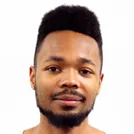I began senior year pretty jaded, feeling like I had very little left to learn at Stanford. I had spent time in Cape Town, Detroit and Palestine over the prior nine months watching people who were directly engaged in social movements, and so I was eager to escape the over-manufactured Stanford bubble for the real world. But the intervening months have proved my self-assuredness and cynicism very wrong.
I spent all of last quarter teaching a class on theories and methods of affecting social change with my best friend, in preparation for an Alternative Spring Break trip we led looking at Black, Arab and queer organizing as case studies for doing our own justice-based work. Some of the biggest lessons I learned during ASB came from my fellow participants. During one of our nightly reflections, one friend asked whether how he — a white student — might ever contribute to a place like minority-majority Stockton, where we spent the day visiting.
The answer our group came up with — that you can work across identity and perceptions if you approach a community with humility — recalled exactly my experience in Detroit last summer. And I reflected that while I was a black person entering a predominantly black city, my skin color did not imply that I was immediately accepted or that I could identify with Detroiters’ struggles. While not ignoring the reality that I likely did have an easier time integrating into the community as a black person, the privileges of my educational and social background make me closer to my white friend than not. Regardless of background, we all share the associations of our common denominator — Stanford University.
Towards the end of our trip, we sat with longtime East Palo Alto organizer Bob Hoover and heard him predict EPA’s complete gentrification in four or five years, thanks to the growth of companies like Facebook and Google and the predatory speculation on low-cost housing in the neighborhood. Regardless of how we identify politically, all Stanford students should understand how our university and the industry to which it’s tied and into which many of us will go is directly related to the continued injustice facing people just down the road from us.
Debriefing our trip with faculty at the end of the trip, one professor recalled author Adam Mansbach’s response to a Ph.D. student’s question during the Occupy Art class in 2012. The student had asked Adam how she could shed the “contamination” of her Stanford degree in order to continue engaging with the communities she cared about. Adam’s response, “It’s too f—king late!” feels especially resonant. None of us can give back the experiences, advantages and complicity we’ve gained as Stanford students, even if we are disturbed by the deeply unjust power dynamics that give us so much while leaving the majority of the world with so little.
None of us can give back the unearned advantages or disadvantages of our skin color, of our family’s wealth, our nationality or sexuality. We can, however, control what we do with our (in many cases unearned) privileges. While I have always tried to judge people based on their actions and less so on my assumptions, this notion does escape me at times. It is easy to see things as black and white (especially things like blackness and whiteness). My pledge for the coming nine weeks is to work against assuming people’s politics based on how I perceive them, to work to use language and ideas that are accessible outside of activist circles and to work to meet people where they are — to figure out where our common ground is.
My favorite metaphor from our trip came during the South Asian Berkeley Radical Activism History Walking Tour, when our guides were discussing how to engage with groups whose politics seem questionable to us: If we’re not on the same page, are we at least on the same chapter? Even though those of us in more progressive circles may have criticisms of others with less radical politics, this still remains a good metric for deciding how to work with other people. I myself was intimidated by the words imperialism, colonialism and neoliberalism two years ago, and I did not grow to engage with them by being told my politics were inconsistent or problematic, but by having friends who were willing to answer questions, provide food for thought and let me set my own pace along the way.
Not everyone will understand or agree with my analysis and criticisms of capitalism and racism, but presumably most agree that class and race should not correlate with whether someone has a successful life, and I’d like to see where we can move from there. To take this idea even further, I would like to spend the remainder of my time considering what legendary BSU leader Steve Phillips ‘86 wrote about the organization’s ideology through South African divestment and the protests over Western Civ requirements: “No permanent friends, no permanent enemies — only permanent interests.”
As I look to the next stage of what will be a life of addressing exploitation, racism and the misdeeds of my national government, I hope to hold all of these lessons dear and deep. While continuing to maintain a critical lens and to urge others to do the same, I hope that I can engage with people who are genuinely interested in these topics in ways that are welcoming and mutually beneficial. I look forward to spending my last quarter trying.
Contact Kristian Bailey at [email protected].
